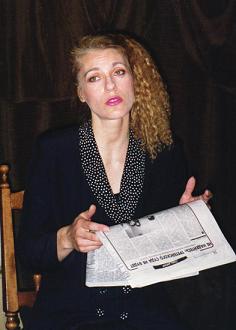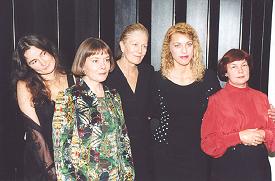TATYANA VOLTSKAYA was born in Leningrad 12th December 1960 and graduated from the Krupskaya Institute of Culture. For a short while she worked in the Institute’s Library, afterwards as a guide in the Pushkin Museum in Pushkino. Poet, member of the St.Petersburg Union of Writers, author of three collections. as well as critical essays, which have appeared in leading journals: Znamia, Novy mir, Oktiabr, Druzhba narodov, Zvezda and Neva. Her poetry has been translated into English, Italian, Dutch, Swedish and Finnish.
Voltskaya began working as a journalist in 1987-88 on Petersburg (at that time still Leningrad) Radio with programmes on early twentieth-century Russian philosophers, journals, contemporary writers and poets. She is a member of the St.Petersburg Union of Journalists and since 1992 has been a correspondent for the Petersburg paper Nevskoe vremia; she has also contributed no Novaya gazeta, published in Petersburg, the BBC in London (a religious journal Voskresenie); in Moscow articles have appeared, mainly, in Literaturnaya gazeta, Vremia I my and the journal Znamia; in Paris, in Russkaya mysl. Since 2000 se has been a correspondent of the Svoboda radio station (Radio Liberty).
 |
